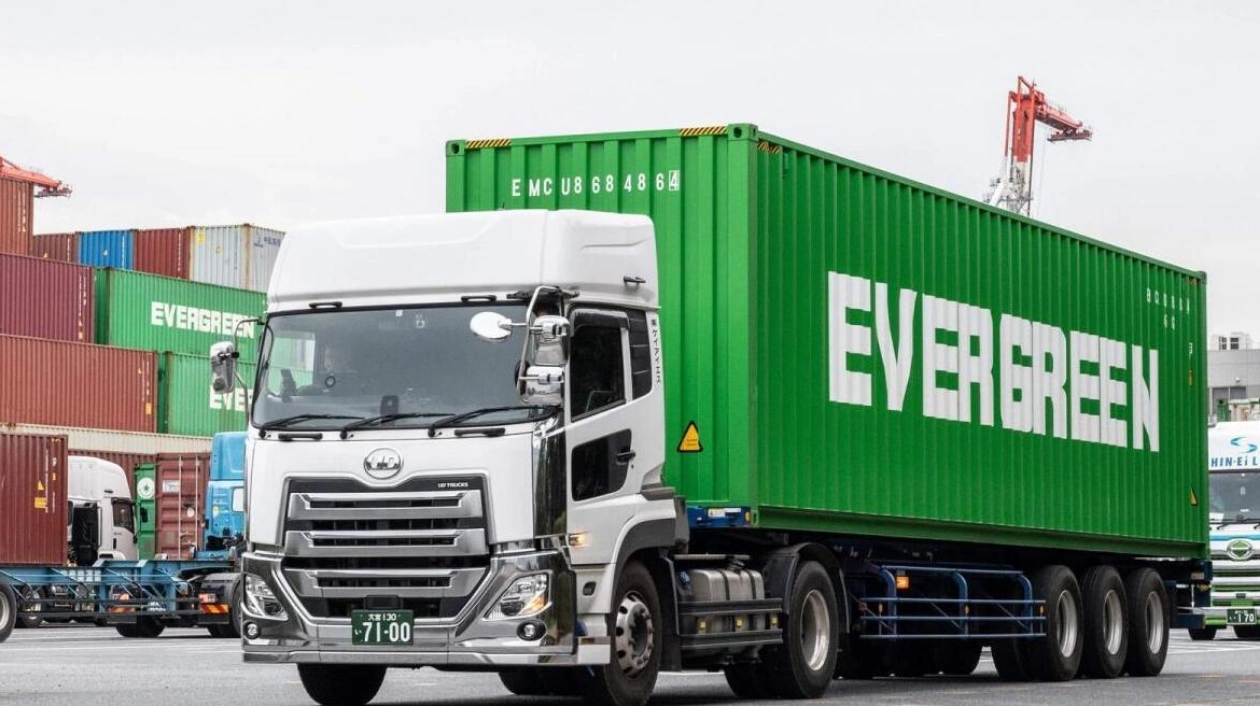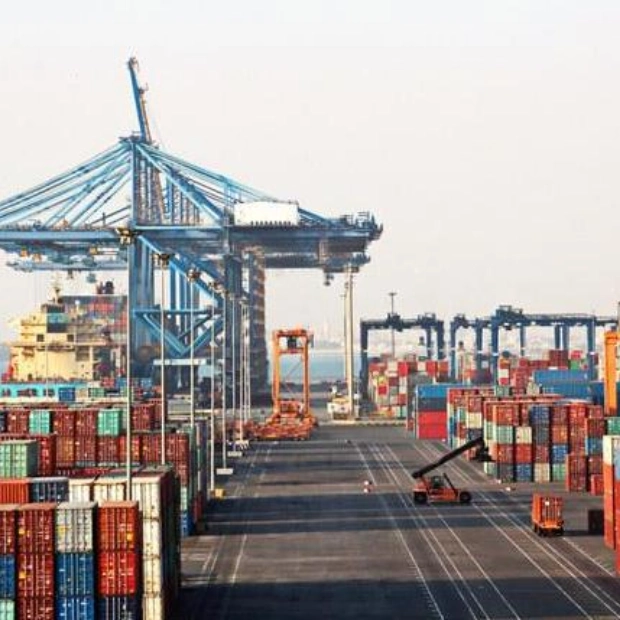A trailer truck departs from the international cargo terminal after being loaded with a shipping container at the port of Tokyo. — AFP file
Fujio Uemura must rest after driving fish overnight to Tokyo, under new regulations that trucking firms and experts claim are severely impacting Japan's logistics sector and could lead to higher prices for consumers. These rules are designed to alleviate the strain of the low-paying, demanding trucking profession, making it more appealing to young people in Japan, where around 90 percent of goods are transported by road.
"Before, I would drive as long as possible before taking a break," Uemura said after his 1,000-kilometer journey from Oita in southern Japan with his load of fresh fillets. "Long hours don't bother me. It's my job," the 59-year-old told AFP after agilely descending from his refrigerated 10-tonne vehicle.
Since April, truck drivers' annual overtime has been limited to 960 hours, or an average of 80 hours per month, along with new rules on break stops. Previously, there was no effective limit, and many drivers worked around the clock to boost their modest earnings. However, this lifestyle can be isolating and unhealthy, with long, irregular hours contributing to high rates of heart disease and strokes.
Despite its significance to the world's fourth-largest economy, the trucking industry holds a precarious position in Japan's economic hierarchy. Truck drivers typically work 20 percent longer than the average worker but earn about 10 percent less, roughly 4.5 million yen ($30,000) per year. Nearly one in five works 60 hours a week or more. Most of Japan's approximately 63,000 trucking companies are small, with 10 or fewer vehicles, and even before the new rules, many struggled to survive.
The new regulations are the tipping point, according to Haruhiko Hoshino, a senior official at the Japan Trucking Association. "Reducing drivers' work hours means turning down jobs. Turning down jobs means that items will not be delivered," Hoshino told AFP. Without substantial reforms, Japan by 2030 could lack the capacity to move up to 34 percent of its domestic cargo, according to a study frequently cited by the government.
The effects are already evident, with reports of airports struggling to secure enough aviation fuel earlier this year and delays in the delivery of fruits and vegetables. Companies are collaborating to share lorries, a previously unthinkable step, while dairy firms are considering standardizing containers. The government's solution to the so-called "2024 Problem" is for companies to be more lenient with trucking firms and not insist on discounts and free services.
Ultimately, higher prices for consumers may be inevitable, according to Hiroaki Oshima, professor at Ryutsu Keizai University. This could pose a challenge for Japan's new Prime Minister Shigeru Ishiba after the October 27 elections. His predecessor, Fumio Kishida, faced poor popularity partly due to inflation squeezing incomes.
Uemura used to collect fish products in the mornings from various locations in his home region and then drive them to Tokyo. Now, his employer Portline Service assigns separate drivers for the pick-ups before Uemura heads to Tokyo in the afternoon. Portline's boss, Katsuya Doi, estimates this costs an additional 1.3 million yen ($8,750) or more each month.
Doi is working with rival firms to share assignments, negotiate fee increases, and host public seminars to raise consumer awareness. Despite this, Uemura's 35-year-old son has taken up truck driving after leaving shipbuilding. "I told him that this is not a job that lets you sleep a lot," Uemura said with a laugh. "You earn more with your hard work."
Source link: https://www.khaleejtimes.com






